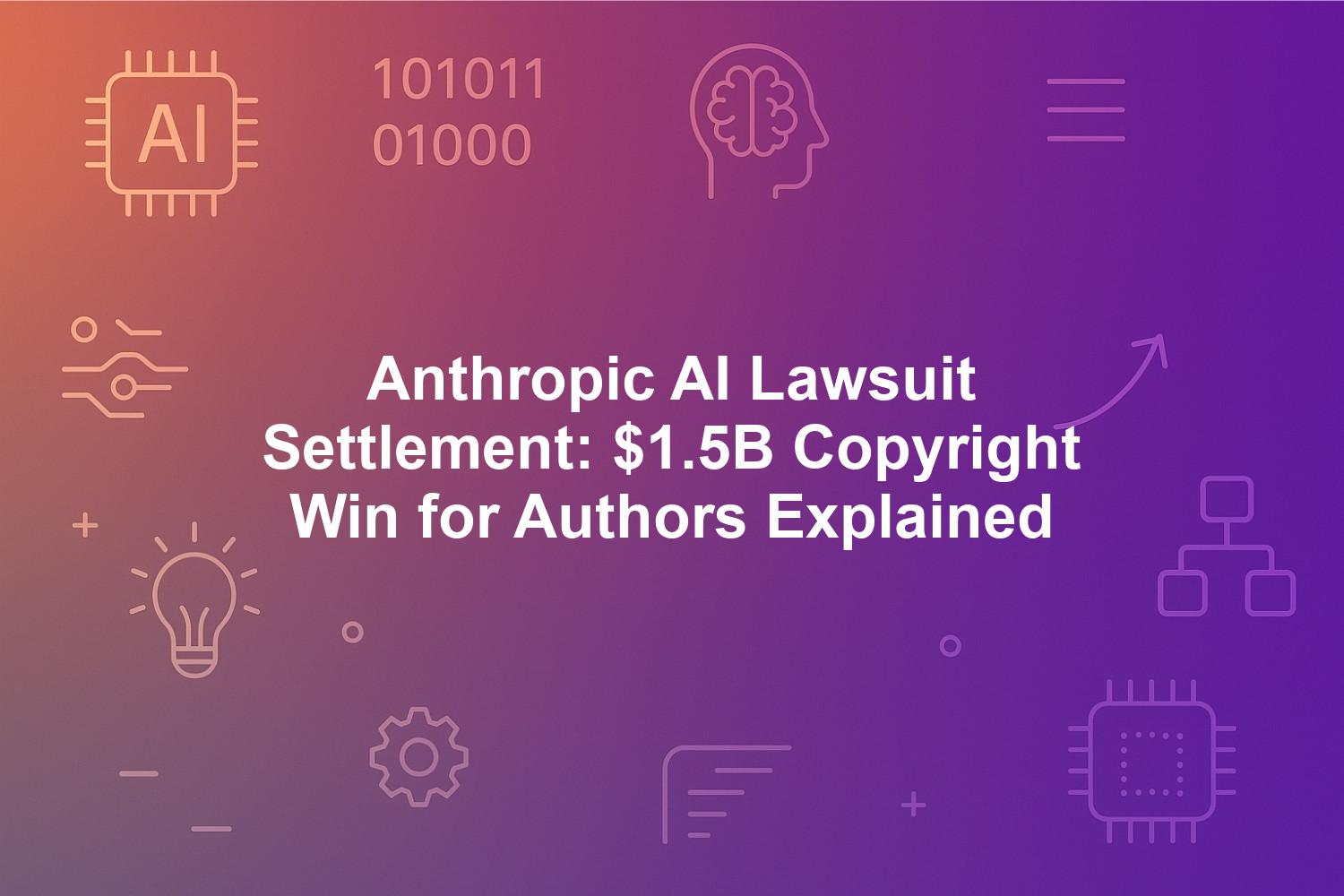Blog
Anthropic AI Lawsuit Settlement: $1.5B Copyright Win for Authors Explained

In a groundbreaking legal event, a recent lawsuit settlement involving Anthropic AI has captured the attention of the tech and literary communities alike. With a staggering $1.5 billion set aside for authors, this settlement not only highlights the evolving landscape of copyright laws but also provides significant insights into the complexities of artificial intelligence and content creation. In this article, we delve deep into what this settlement entails and how it impacts authors, AI developers, and the broader digital landscape.
Understanding the Anthropic AI Lawsuit
What Led to the Lawsuit?
The lawsuit arose from concerns over the way AI models, specifically those related to Anthropic, were trained using copyrighted materials without proper authorization. Authors argued that their works were being utilized in ways that violated their copyright, leading to significant legal discussions about the rights of content creators in an age of rapidly evolving AI technologies.
Key Elements of the Settlement
The settlement requires Anthropic AI to allocate a formidable $1.5 billion to compensate authors whose works were used improperly. This allocation represents one of the largest payouts in copyright history, setting a formidable precedent for future AI-related litigations.
Implications for Authors and Creators
Why This Matters for Authors
- Financial Security: The settlement provides financial relief to many authors directly affected by AI misuse.
- Strengthening Copyright Laws: This case sets a legal benchmark, reinforcing authors’ rights in digital contexts.
- Future Protections: With a significant amount at stake, authors may better understand their rights and protections against unauthorized use of their works.
Insights for AI Developers
AI developers must take heed of the implications of this settlement. As technologies develop, understanding the boundaries of copyright use is critical. Here are some considerations:
- Transparent Data Usage: Developers should prioritize transparency in how they source and use data for training AI models.
- Licensing Agreements: Proper licensing agreements with content creators can mitigate legal risks and foster goodwill.
- Ethical Development: Emphasizing ethics in AI development will enhance reputations and reduce conflict with creators.
The Bigger Picture: Copyright in the AI Era
Evolving Legal Landscape
As AI continues to evolve, so too must copyright laws. This lawsuit exemplifies the pressing need for updated regulations that can effectively address the unique challenges posed by AI-generated content. Legislators and industry leaders are now faced with questions about:
- How to effectively define "fair use" in the realm of AI?
- What safeguards are necessary to protect intellectual property while still fostering innovation?
Future Directions for Copyright Laws
- Legislative Updates: There’s a growing consensus on the need for comprehensive updates to copyright laws that account for AI technologies.
- Global Collaboration: International cooperation will be vital in establishing consistent copyright regulations that apply across different jurisdictions.
- Engagement with Creators: Ongoing dialogues between content creators and technology developers will be essential in shaping a mutually beneficial future.
FAQs About the Settlement
Q: How will authors receive compensation from the settlement?
A: Authors will be notified regarding the claims process as the settlement is set up to ensure that affected parties receive their dues efficiently.
Q: Will this settlement change how AI companies operate?
A: It’s likely. Many AI companies will reassess their data usage policies and strive to implement ethical practices to avoid similar lawsuits in the future.
Q: Can we expect more lawsuits of this nature?
A: Yes, as AI technology continues to proliferate, the potential for legal disputes surrounding copyright violations may increase.
Practical Tips for Authors
- Stay Informed: Keep up to date with copyright laws and your rights concerning AI-generated content.
- Consider Settlement Options: If impacted, consult with legal experts to understand your rights and options due to the recent settlement.
- Advocate for Your Work: Join organizations or groups promoting authors’ rights in the AI landscape.
Conclusion: A New Dawn for Copyright and AI
The $1.5 billion settlement reached with Anthropic AI marks a pivotal moment in the ongoing dialogue between technology and copyright law. It serves as a critical reminder that while innovation can propel us forward, it is essential to ensure that creators’ rights are preserved and respected. As we move into an era where AI continues to play a significant role in content creation, both authors and developers must work collaboratively to navigate the challenges and opportunities that lie ahead.
For further insights on copyright and AI challenges, visit Theme Bazaar to explore related topics. Understanding these dynamics will be crucial for anyone involved in content creation or AI technology.

